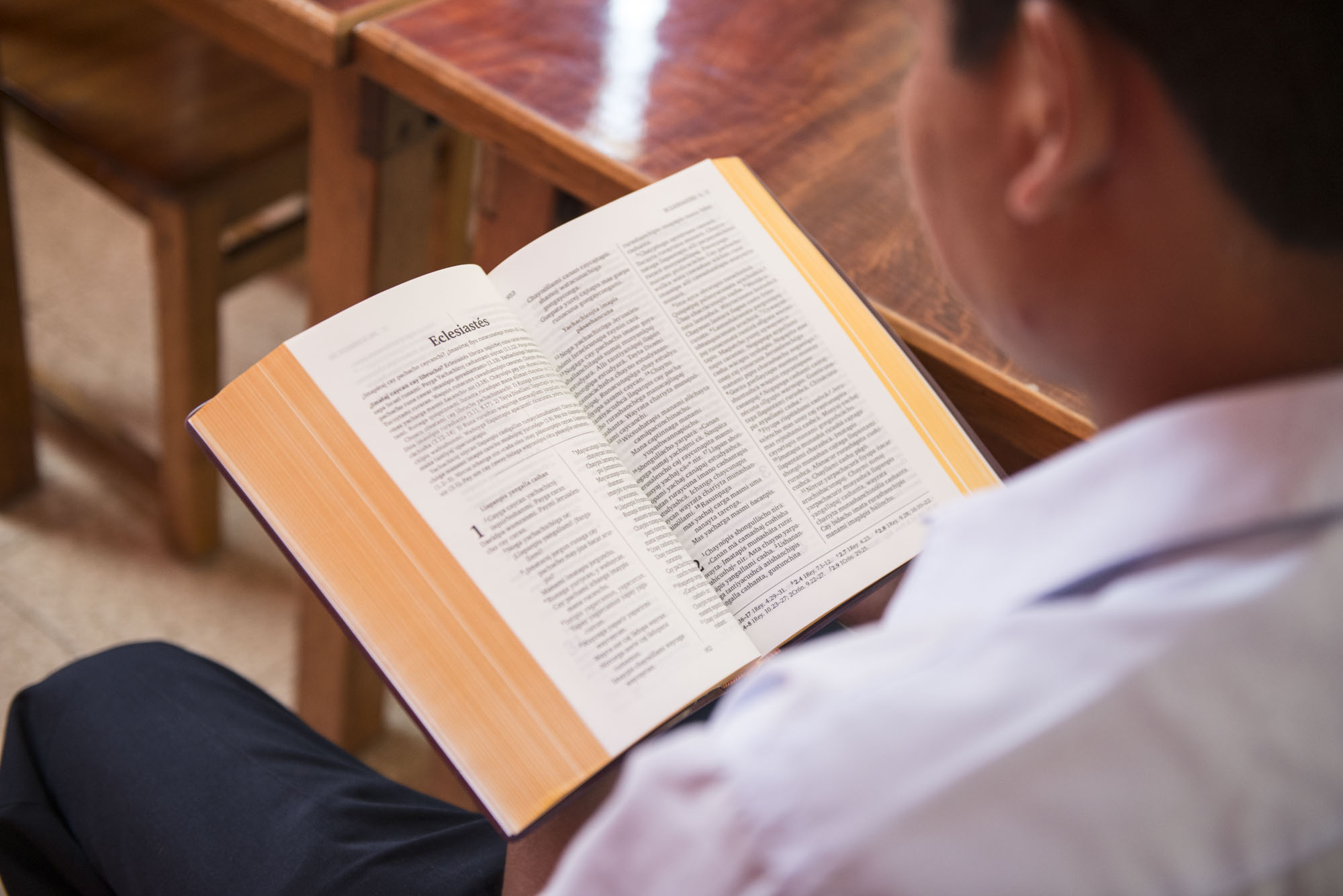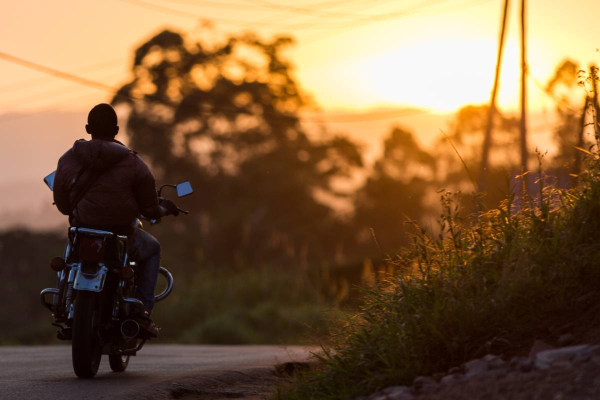Taste and See
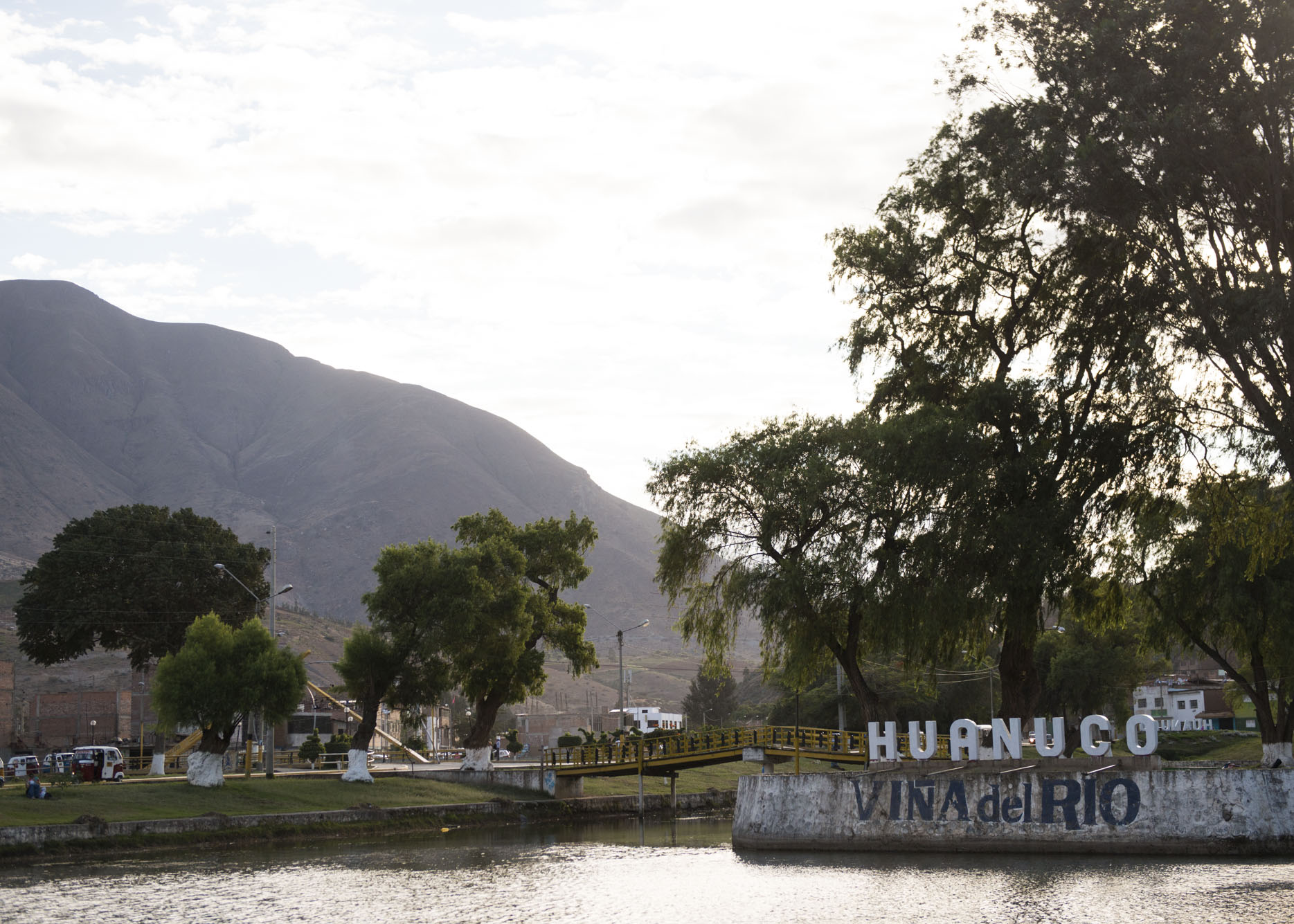
“Our work is a little bit like we're working in the kitchen, making something really special,” Mark tells me. “I usually say they're cinnamon rolls; you can call them chocolate chip cookies, or brownies, or whatever.
“We put it in the oven, and you can just smell it and think, ‘Wow, what a wonderful thing.’ If you have kids and they're going to come home from school, you can't wait for them to try it. To see them jumping around and being excited and saying, ‘Wow, this is really good!’”
Mark, believe it or not, is talking about Bible translation. For more than 30 years he and his wife, Patti, have been translating Scripture in Peru. Presently they’re facilitating a cluster project with a team representing five unique Quechua languages. They finished their Old Testaments, and now they’re revising the five New Testaments. Soon the books will be printed as complete Bibles!
You’d think the team might take a rest and enjoy the accomplishment. But Mark shakes his head, no. There’s too much work to be done, he says. And for this team, it just can’t get done quickly enough. Like a sweet treat or savory sustenance — they love the translated Word.
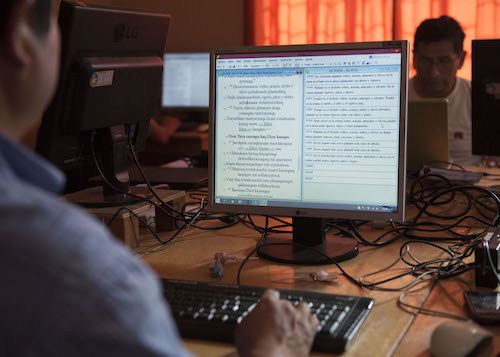
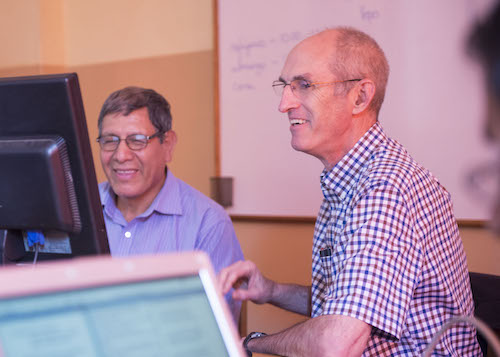
You can tell they love the Scriptures by the way they work diligently together. I watch quietly as they gather around a table covered in computer monitors, cables, food wrappers, water bottles, Bibles and notes. The curtains are drawn tight across the windows to keep the glare from the sunlight off the computer screens. Mark consults with one of the translators on a verse or passage they just finished. The others are deep in concentration, reading and making small edits here and there.
The white board behind Mark is full of notes in Quechua — foreign to me, but perfectly familiar to them. One of the translators doesn’t feel well, but declines Mark’s invitation to quit early for the day. He’d rather keep working.
And you can tell they love it by the sacrifices they made to get here. One translator travels from his Quechua village in the mountains down to a lower village — a three-day walk — and from there it's a 10-hour drive to the workshop, if there's a vehicle around.
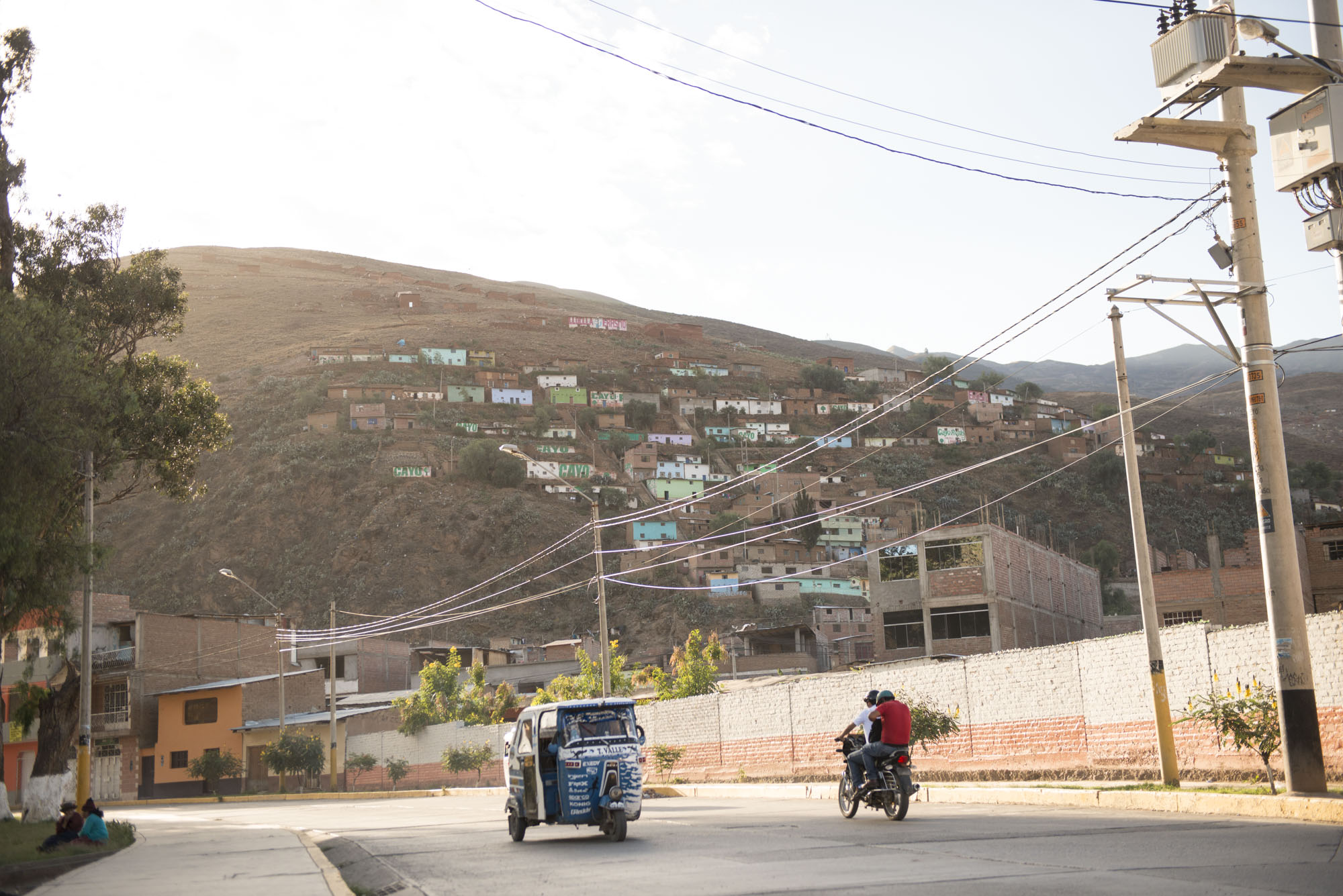
Another man passed up other job opportunities — stable, better paying opportunities — because he felt called here. Another feels guilty leaving his elderly mother behind when he comes to translation workshops, because she feels alone and abandoned in their remote village.
Sometimes their wives and children get sick, and they can't be there for them. One translator almost missed the birth of his child because he was away at a workshop. You can hear them all on their phones every morning and afternoon, checking in with loved ones.
Cars break down. Landslides block roads. “Better” offers come and go. Milestones and struggles happen in each of their families, and they usually miss them. But they still show up here. For what?
Taste and see that the LORD is good. Oh, the joys of those who take refuge in him! — Psalm 34:8 (NLT)
“We get to take it — and it's not cinnamon rolls or brownies or something — but it's God's Word, and we take it out to people,” Mark says excitedly. “And maybe we have the only copy of a particular Bible book in existence in the entire world, and it's in our hands. We read it to people or talk about it … and that's the first time they've ever heard it in their language.”
“It's like, ‘Try it! Taste it! Taste and see! See what it's like.’ And we see the expressions of delight and joy on their faces as they understand for the first time what God is saying in their own language, and it goes right into their heart.”
If we’re being honest, there aren't many of us who would tolerate that kind of commute, or willingly miss important family moments, or pass up stability and comfort, just for a job. How important would the work have to be to you, to make it worth it?
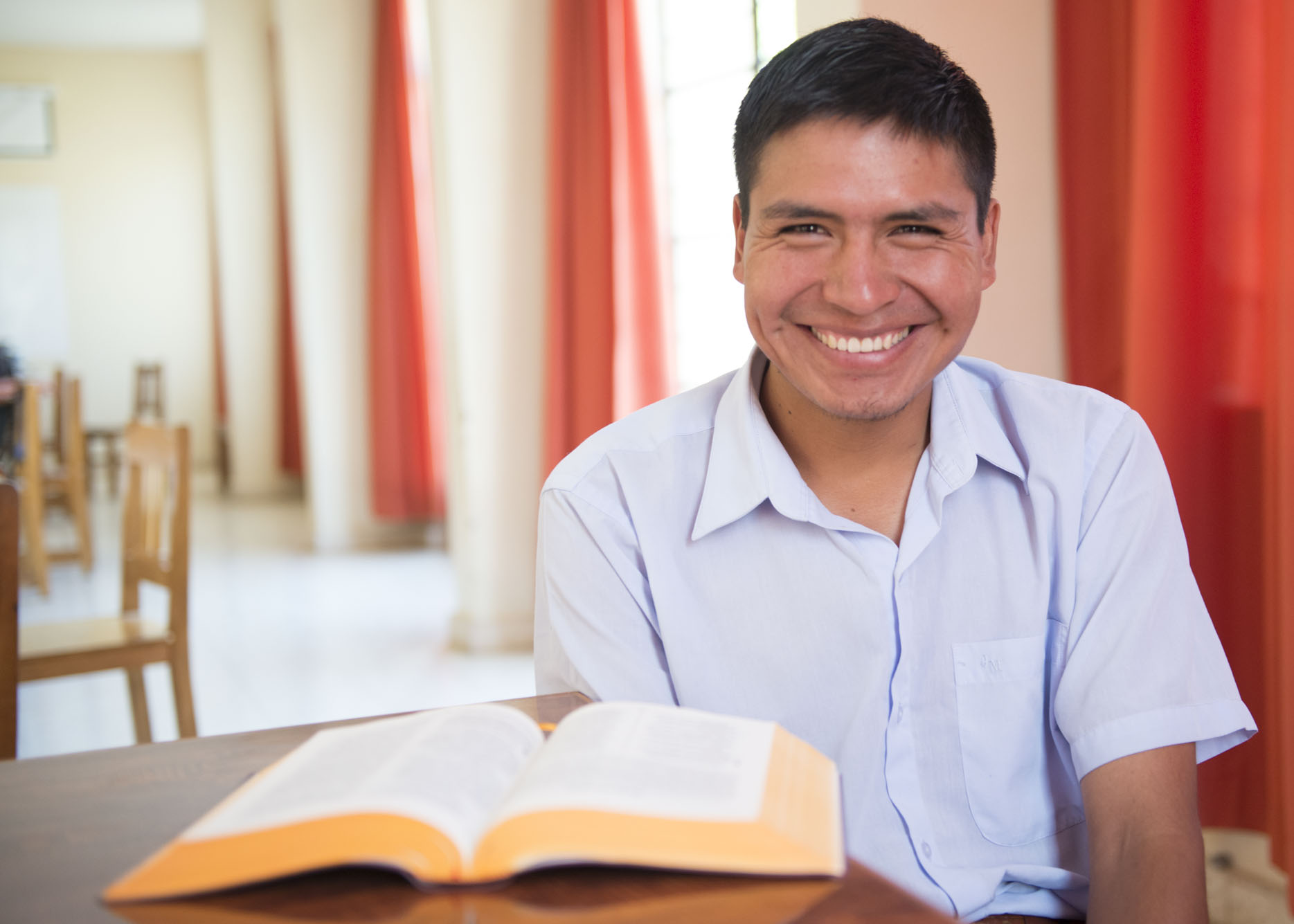
That’s how I know this isn’t just a job to this team. The work isn’t just important — it’s holy. I watched translators working together, men and women who started as co-workers and now relate as brothers and sisters, drawing each and every word and phrase from God’s lips into the hearts of their people. For every person at that table, there’s a village of hundreds or thousands more whose access to God’s message hinges on this work.
One of the Quechua people’s favorite ways of referring to God's Word is to say it's misk’i, or sweet. It's sweet to the taste.
“A missionary can come in and preach or give a message or somebody can share about things, but then when he's gone, he's gone. But if the Bible is in your own language, it stays. God is His own missionary and testifies to Himself through His Word,” Mark says. “What a privilege we have to be able to prepare that sweetness of God's Word, and then share it with people and see them taste and see as well.”
